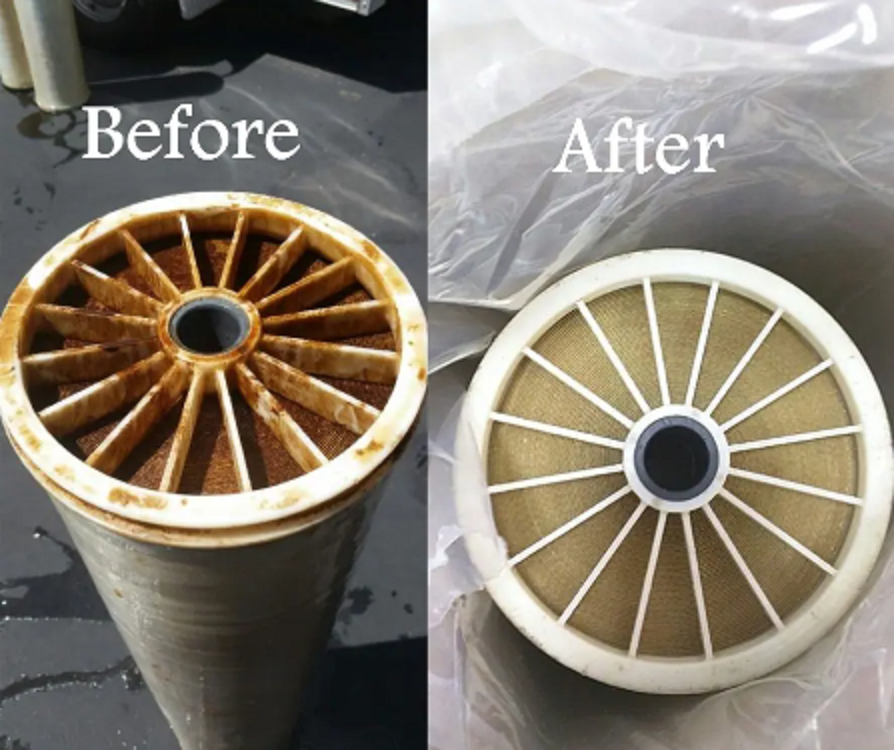
Questions about carbon block and granular activated carbon (GAC) water filters
We receive many questions regarding carbon block and granular activated carbon (GAC) water filters, as well as the difference between them and reverse osmosis systems. So, we have dedicated this article to answering some of them. You can add more questions in the comments, and our experts will respond to them.
Are carbon block water filters safe?
Carbon block water filters are a safe way to filter your drinking water.
The best carbon block water filter is tested to ensure its safety and efficiency. Products from Carewater have been tested according to the highest standards to remove lead, organic compounds, and more.
What is better, carbon block or reverse osmosis?
Unlike carbon, reverse osmosis systems use pressure and a semi-permeable membrane to remove contaminants from water. According to the Centers for Disease Control and Prevention (CDC), “reverse osmosis systems have a very high effectiveness in removing bacteria (such as Campylobacter, Salmonella, Shigella, E. coli).” Reverse osmosis systems can also eliminate viruses and common chemical contaminants.
One downside to reverse osmosis water filters is the loss of some healthy minerals. Mineral molecules are larger than water molecules, so reverse osmosis typically removes healthy minerals like magnesium and potassium from your water.
However, both methods appear to be effective (and are sometimes used in conjunction with each other), so which one is better? Some advantages of carbon block filters include their size and limited maintenance. Reverse osmosis water systems can be costly and large. As a result, you will spend less on maintenance over time with a carbon block filter. This makes carbon block the best choice for many homeowners.
What is the lifespan of carbon block water filters?
Carbon block water filters should last between 2 to 6 months before needing replacement, depending on the brand and model. After this time, the filter will cease to effectively purify your water.
Do bacteria grow on carbon filters?
Carbon block filters do not grow a significant amount of bacteria. According to a study conducted by the International Journal of Hygiene and Environmental Health, it poses no significant microbial risk for users.
Why is Carewater filter the best choice?
Carewater offers the best solid carbon block water filter to remove contaminants including lead, microplastics, chlorine, aluminum, pesticides, PFOS, and cadmium, among others. Our filters remove harmful chemicals while retaining healthy minerals like potassium and magnesium that your body needs. Our filters have a high capacity and can treat up to 120 gallons of water, three times more than the competition, before requiring replacement.
Do carbon water filters work?
Filtering water using carbon has been a common practice since the days of the Ancient Egyptians. There is a reason modern charcoal and carbon water filters are so popular: they are designed using rigorous testing procedures to ensure they get the job done. Some of the parameters for designing carbon filters include raw material selection, filter performance objectives, performance validation, filter dimensions, and finish.
The result is a reliable method for removing contaminants from your water. You’ll taste the difference in every glass of fresh, clean water.
What do GAC Water Filters Remove?
Just like block filters, GAC filters can remove large swaths of organic and inorganic contaminants.
These GAC filters work well, but must be changed regularly to avoid channeling. Channeling is when the ionic reaction between the carbon and the water passing through is reduced, leading to a lack of filtration. Basically, the water takes the path of least resistance through the carbon filter, evading the most effective water filtration particles.

























